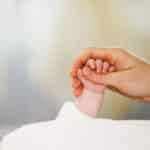There is generally some confusion about this matter. To start with, the name suggests the presence of multiple cysts in the ovary. However, they aren’t cysts, but follicles, i.e., developing eggs. What’s more, the term has become very popular because many young girls’ ovaries “look polycystic” but function normally. The reason for this is that their ovaries haven’t matured yet and the problem usually disappears with time.
What’s known as “polycystic ovary syndrome” is a more complex endocrine disorder caused by a hormone imbalance. If you want to learn more about it, read this post.
- What is the cause?
It’s not known for sure, but it is believed to be caused by a number of factors. - Could irregular periods be a symptom?
Yes, but at least two of these three requirements must be met for a diagnosis to be confirmed: Irregular periods, higher levels of male hormones in the body (androgens) and polycystic ovaries. - Can it affect fertility?
Yes, because it impairs normal ovulation. - Do women who suffer from it develop masculine traits?
Not all of them, but because sufferers have higher levels of male hormones, it can result in excess hair growth in some parts of the body, acne and hair loss. - Is it true that you can put on weight?
Yes, because at the genetic level it causes hormonal irregularities that can lead to weight gain and even diabetes. - Can it be treated with hormonal contraceptives?
Yes, but they won’t cure it. Hormone treatment merely stops ovulation, which makes the symptoms disappear. - Can having children cure polycystic ovary syndrome?
No, but hormonal changes during pregnancy and after childbirth can improve the symptoms. - After taking the hormone treatment, should I wait a few months before trying for a baby?
No. It’s best to start as soon as possible because after hormone treatment your reproductive system is more regulated. - Should I be more careful about what I eat?
Yes. A diet rich in proteins and fruit and vegetables is recommended, and carbohydrates and sugars should be avoided. Consult an endocrinologist or nutritionist for more advice.














